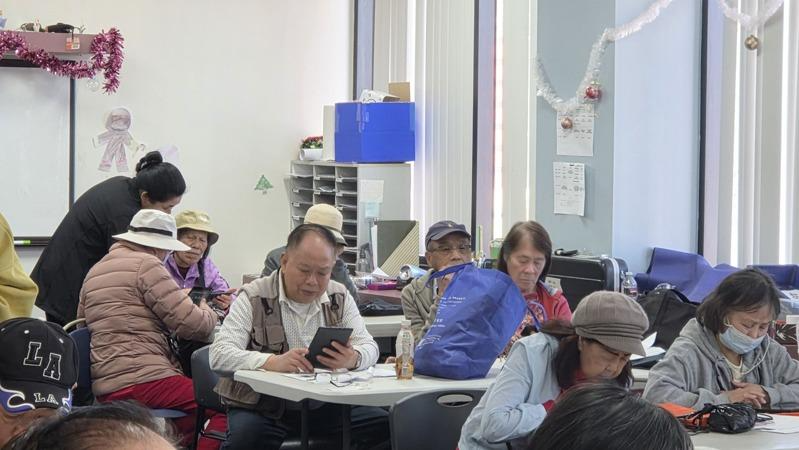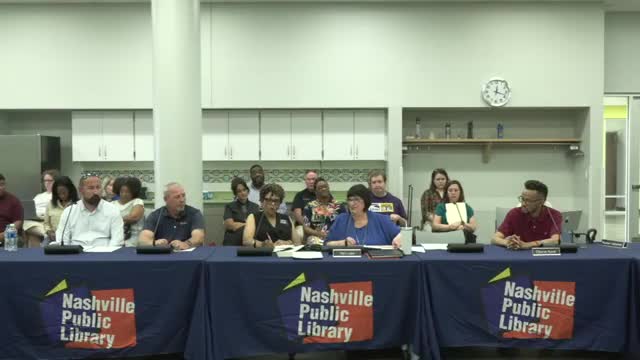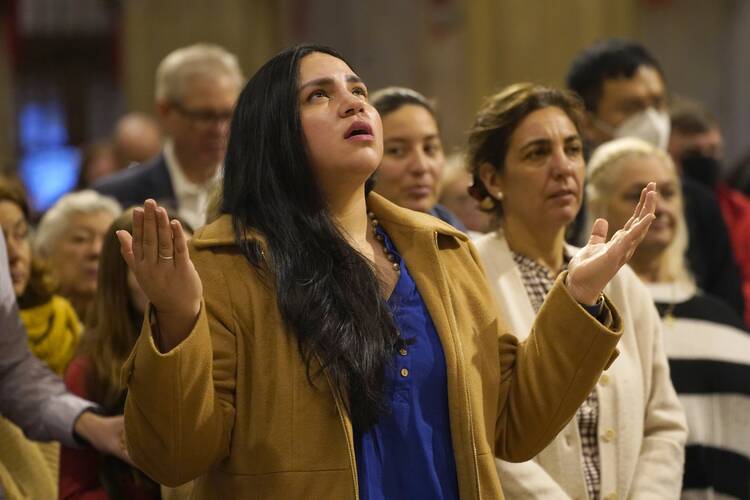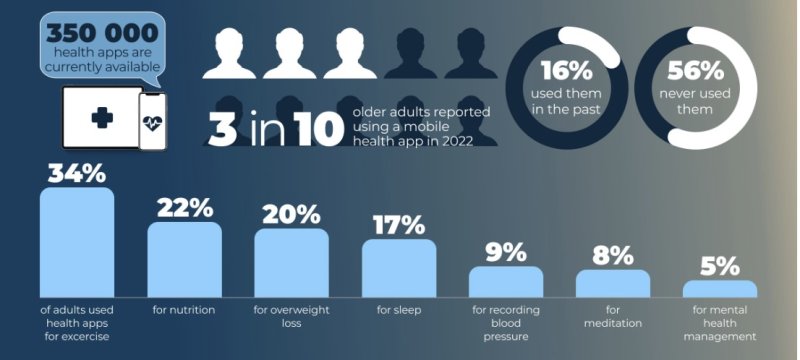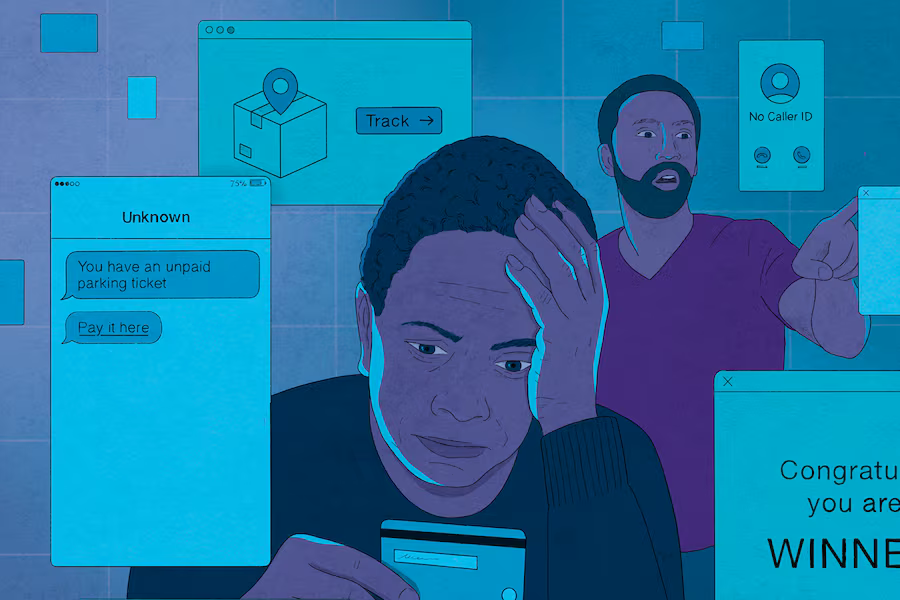Online Chinese classes teach elderly Chinese Americans how to use mobile phones and tablets to improve their lives
Reported by Zhang Tingyu/Los Angeles 2025-12-16 01:06 ET
The classroom at the Chinatown Service Center was packed, with dozens of elderly Chinese Americans attentively listening to several lectures. (Photo by Zhang Tingyu)
To help senior Chinese Americans integrate into digital life, Spectrum Communications, in partnership with the non-profit organization Cyber-Seniors, recently held a Chinese digital course at the Los Angeles Chinatown Service Center, teaching tablet and smartphone operation skills. The course, conducted in Chinese, aimed to enhance seniors’ digital confidence and quality of life.
This course, part of a regularly held digital education series, featured a demonstration of Xumo TV functions in Mandarin by Spectrum Communications’ Chinese-speaking staff. Following the demonstration, instructor Wu led the participants in hands-on practice, covering practical skills such as WeChat usage, web browsing, and YouTube viewing. The course ran from 10:00 AM to 11:30 AM. Christine Calderon Caruso, Executive Director of Cyber-Seniors, stated that teaching in a language familiar to seniors is crucial, explaining, “Teaching in their mother tongue makes them more comfortable and confident in using the internet.” She noted that some participants reported reconnecting with long-lost family members through the course.
Pamela Hoeft, Senior Communications Manager at Spectrum Communications, stated that the company provided a $15,000 digital education grant to Cyber-Seniors in November to support the aforementioned courses. The organization currently has two teaching locations in Chinatown and Monterey Park , covering topics such as mobile app operation, social media use, and digital resource application. Hoeft pointed out that the goal is to help seniors make good use of technology and avoid being marginalized in the digital age, noting that “nowadays, whether it’s seeking medical care, making appointments, or contacting relatives and friends, we are increasingly reliant on mobile phones and computers.”
Ms. Lin, an elderly woman who participated in the course, said that she started taking the course in May or June, learning from the most basic operations. “Before, I could only make phone calls with my mobile phone, and I didn’t know anything else,” she said. Now she can use the camera, the internet, and basic applications. “My life has changed a lot.” She also praised Teacher Wu for her meticulous teaching and for providing teaching materials. Students can get immediate answers to their questions.
A student surnamed Chen said that through the course she learned to use YouTube and Chinese news websites. “Before, if I missed the news, I had no chance to watch it again. Now I can watch it online and I don’t have to worry about missing it.” She also expressed interest in Spectrum Chinese TV service, believing it is more in line with the needs of the Chinese community. Caruso said that although the different models of devices brought by the elderly presented a challenge, the team was able to provide guidance according to the iPhone or Android systems.
Since launching its digital education program in 2017, Spectrum has provided over $11 million in funding to nonprofit organizations, helped distribute nearly 20,000 laptops, and funded over 45,000 digital classes, benefiting approximately 188,000 community members across the United States. In addition to Chinatown, Cyber-Seniors also offers classes in Monterey Park, serving even more Chinese-speaking seniors. To date, the Spectrum Digital Education Program has awarded 383 grants in 41 states across the U.S., benefiting 188,000 people.

